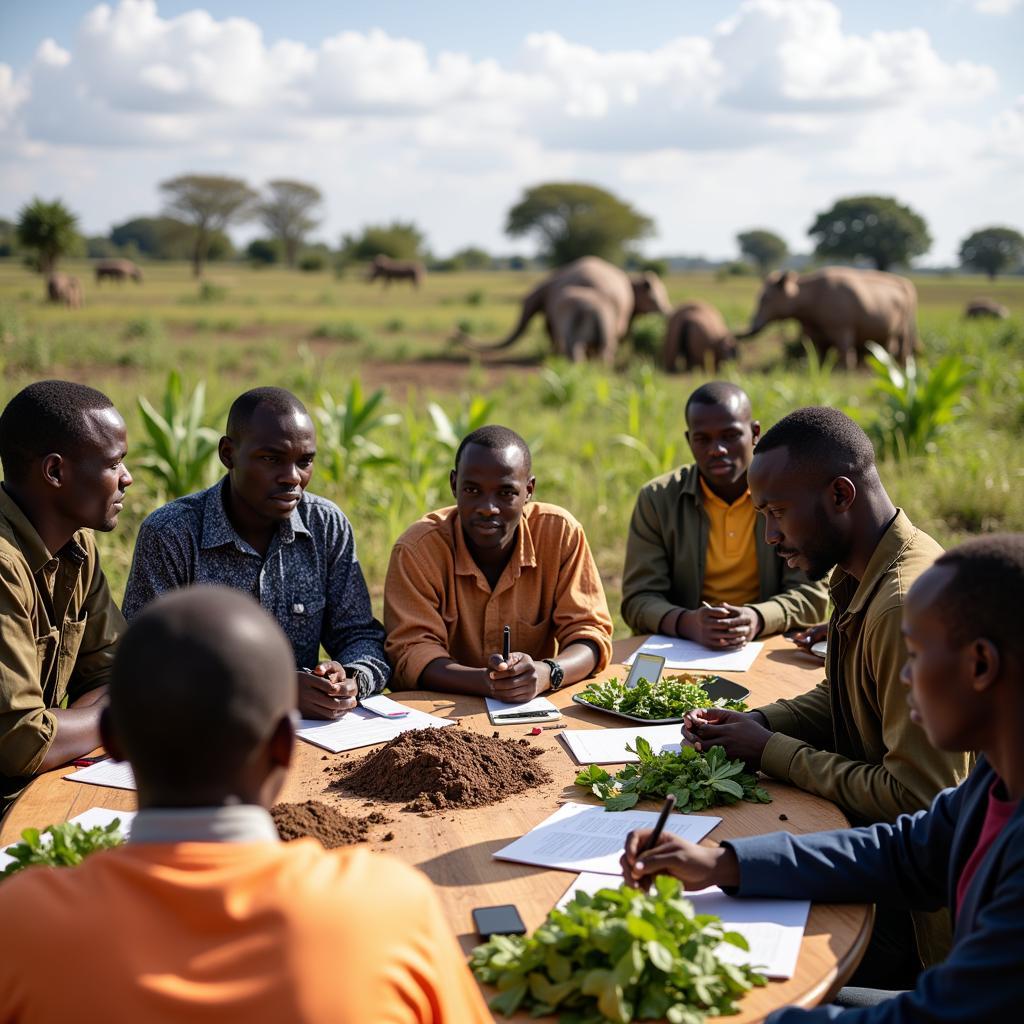Investing in the Future: African Development Bank and Agriculture
The African Development Bank (AfDB) recognizes agriculture as a key driver of economic growth and poverty reduction on the continent. Through strategic investments and initiatives, the African Development Bank Agriculture sector plays a crucial role in supporting sustainable agricultural practices, enhancing productivity, and improving livelihoods across Africa.
The Vital Role of Agriculture in Africa
Agriculture is not merely an economic sector in Africa; it’s deeply woven into the cultural fabric and livelihoods of its people. Employing a significant portion of the population and contributing substantially to GDP, agriculture holds the key to unlocking Africa’s vast potential.
The AfDB’s Multifaceted Approach to Agricultural Development
The AfDB implements a multi-pronged approach to agricultural transformation, focusing on key areas:
- Boosting Agricultural Productivity: The Bank invests in initiatives that enhance agricultural yields and improve the efficiency of production systems. This includes promoting climate-smart agriculture, supporting access to improved seeds and fertilizers, and fostering mechanization.
- Strengthening Agricultural Value Chains: Recognizing the importance of adding value to agricultural products, the AfDB supports projects that strengthen value chains, from production to processing, marketing, and consumption. This involves investments in infrastructure, technology, and capacity building.
- Promoting Agricultural Research and Technology: The AfDB supports agricultural research and development to generate innovative solutions for challenges facing African farmers. This includes investing in agricultural research institutions, promoting technology transfer, and supporting the adoption of climate-resilient technologies.
- Enhancing Access to Markets: The AfDB works to improve farmers’ access to domestic, regional, and international markets. This involves supporting the development of rural infrastructure, facilitating trade, and promoting market information systems.
- Building Resilience to Climate Change: Recognizing the vulnerability of African agriculture to climate change, the AfDB prioritizes climate-smart agriculture. This includes investments in drought-resistant crops, water management systems, and climate information services.
Success Stories: AfDB’s Impact on the Ground
The AfDB’s investments in agriculture have yielded tangible results across the continent. Here are a few notable examples:
- Tanzania: The bank’s support for irrigation systems in Tanzania has significantly increased rice production, improving food security and incomes for thousands of farmers.
- Senegal: In Senegal, the AfDB financed the construction of a modern dairy processing plant, boosting the incomes of local milk producers and strengthening the dairy value chain.
- Rwanda: Through its support for agricultural cooperatives, the AfDB has empowered women farmers in Rwanda, enabling them to access markets and increase their incomes.
 African Development Bank Project Meeting
African Development Bank Project Meeting
The Future of Agriculture in Africa: Challenges and Opportunities
While the African agricultural sector has immense potential, it also faces significant challenges:
- Climate Change: Increasing temperatures, droughts, and floods threaten agricultural productivity and livelihoods.
- Limited Access to Finance: Many smallholder farmers lack access to credit and financial services, hindering their ability to invest in their farms and businesses.
- Inadequate Infrastructure: Poor roads, limited storage facilities, and inadequate transportation networks hinder market access and increase post-harvest losses.
- Land Degradation: Soil erosion, deforestation, and unsustainable land management practices threaten the long-term productivity of African soils.
Despite these challenges, there are significant opportunities for transforming African agriculture:
- Youth Engagement: Africa has a youthful population, presenting a significant opportunity to engage young people in agriculture as a viable and profitable career path.
- Digital Technologies: Mobile technology, precision agriculture, and data analytics offer enormous potential to improve efficiency, access to information, and market linkages.
- Growing Demand for Food: With a rapidly growing population and increasing urbanization, the demand for food in Africa is projected to increase significantly, creating vast market opportunities.
 African Woman Farmer Using Technology
African Woman Farmer Using Technology
The AfDB: A Committed Partner in Africa’s Agricultural Transformation
The African Development Bank remains steadfast in its commitment to supporting sustainable and inclusive agricultural growth in Africa. Through its investments, partnerships, and knowledge sharing, the AfDB plays a crucial role in unlocking the potential of agriculture to drive economic transformation, reduce poverty, and improve the lives of millions of Africans.
FAQ
How does the African Development Bank support agriculture?
The African Development Bank invests in a range of agricultural initiatives, from boosting productivity and strengthening value chains to promoting research and enhancing climate resilience.
What are some of the AfDB’s successful agricultural projects?
The AfDB has supported successful projects across Africa, including irrigation schemes in Tanzania, dairy processing plants in Senegal, and women-led agricultural cooperatives in Rwanda.
What are the main challenges facing African agriculture?
Key challenges include climate change, limited access to finance, inadequate infrastructure, and land degradation.
Need Help? Contact Us!
For further inquiries about the African Development Bank’s work in agriculture, please don’t hesitate to reach out:
Phone: +255768904061
Email: kaka.mag@gmail.com
Address: Mbarali DC Mawindi, Kangaga, Tanzania
Our dedicated customer support team is available 24/7 to assist you.



